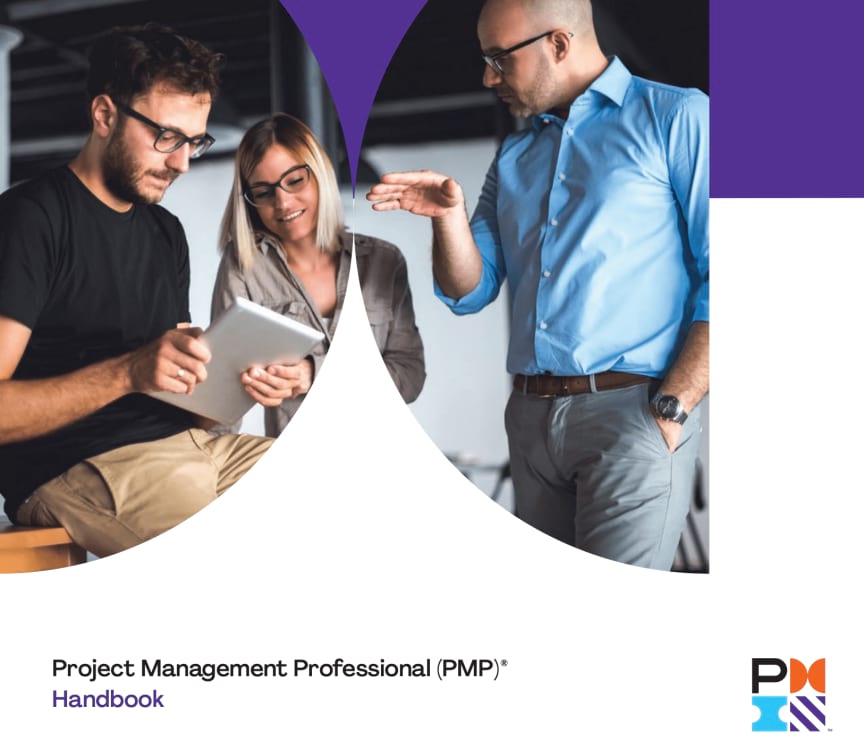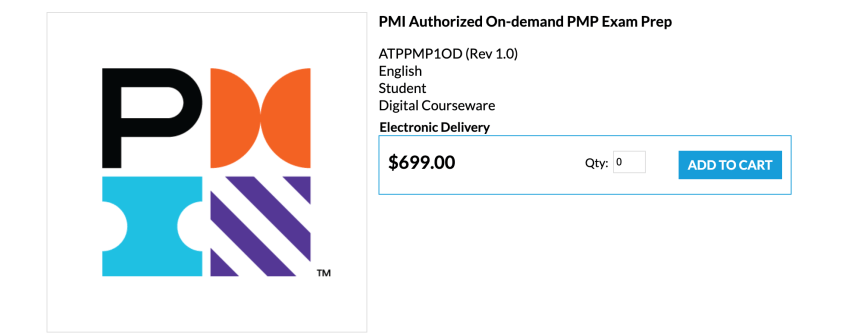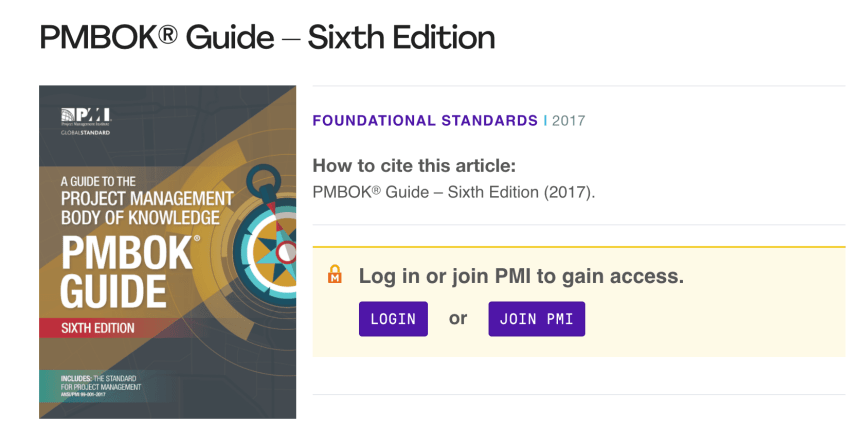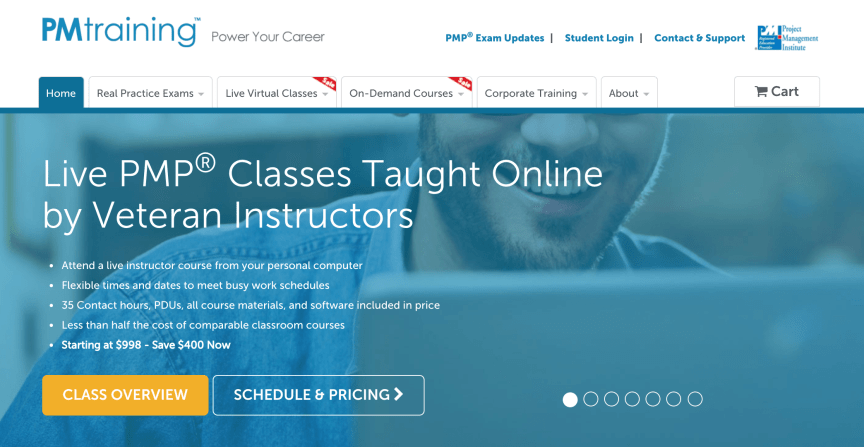Project manager is much more than just a job title. Like many other careers, the path to becoming a project manager requires specific skills, experience, and credentials.
Before an organization trusts you to lead a team and manage a budget that’s potentially millions of dollars, they must know that you’re qualified to do the job successfully.
To fast-track your career as a project manager, you should get a PMP (Project Management Professional) Certification. According to the Project Management Institute (PMI), roughly 2.2 million project-oriented positions need to be filled every year through 2027—project managers are in high demand.
Becoming a project management professional will give you an edge over others competing for the same jobs. We created this guide to explain everything you need to know about getting your PMP certification.
What is Project Management Professional?
The Project Management Professional Certification, also known as the PMP Certification, is issued by the Project Management Institute (PMI) to project managers who meet certain criteria.
There are several different requirements that must be obtained before someone can apply for the PMP certification.
Once a candidate’s application has been approved by the PMI, they must pass a comprehensive exam to officially get certified as a project management professional.
While a PMP is not necessarily a requirement for project management positions, it certainly helps people stand out when applying for jobs in this field.
Think of the PMP certification like any other or degree. For example, you might not need a master’s degree to do certain jobs, but if employers are comparing two resumes, candidates with a master’s definitely stand out from those with a bachelor’s or associate’s degree.
4 Tools to Prepare For The Project Management Professional Certification
To make sure that you pass your PMP exam on the first try, you should take advantage of any tools and training resources at your disposal. These are the top ones that we recommend:
#1 — The PMP Handbook

The PMP Handbook is a 40-page PDF document offered by the Project Management Institute. Any time the organization that’s issuing a certification offers you a resource like this, you should make an effort to go through it. It contains everything and anything you could possibly need to know about the certification.
You’ll learn more about the timeline of getting certified, the application and payment process, the PMI audit process, exam policies and procedures, and more. This free resource even contains information about your CCR (continued certification requirements), ethics and professional conduct, scheduling, reexamination, and legal restrictions on taking the exam. In short, if you have a question or need clarification on becoming a Project Management Professional, this handbook has the answer.
#2 — PMI Authorized On-Demand PMP Exam Prep

This self-guided tool is the official online preparation course offered by the PMI. It’s specifically designed to help project managers prepare for the PMP exam. The tool has been developed by the PMI and validated by PMP certificate holders. It contains five modules that cover every aspect of project management. From building a team to executing a project and supporting business changes, the course has it all. It’s perfect for PMP candidates and mid-level project managers alike.
The best part about this course is that it satisfies the 35 training hours required to fill out the PMP application. So in addition to preparing for the test, you’ll simultaneously be crossing prerequisites off of your list. The $699 fee is well worth the preparation and guidance you’ll get from completing this course.
#3 — PMBOK Guide

I strongly recommend that you read the PMBOK Guide—A Guide to the Project Management Body of Knowledge. This is the flagship publication offered by the Project Management Institute. It covers fundamental project management resources that can be applied to any industry.
In addition to helping you prepare for the PMP exam, it’s also an excellent resource to have at your disposal as a project manager. It’s something that you can always refer back to throughout your career for quick tips and refresher points. When you order the book, you’ll also get a free copy of the Agile Practice Guide. The paperback versions of these books retail for $99 and $49, respectively. Alternatively, you can get free downloadable access to the PMBOK Guide with your PMI membership. Memberships start at $129 per year.
#4 — PMTraining

In addition to resources directly from the PMI, you can also prepare for the PMP exam with third-party tools. There are dozens of options out there, but PMTraining is my favorite. I like this resource because they provide so many different learning tools. They have live in-person classes, live online classes, on-demand courses, and more.
You can even take PMP practice Exams on this website. These exams mimic the real testing environment that you’ll experience when you officially apply for your PMP. The practice exam from PMTraining starts at $68. The on-demand PMP course costs $198 for 90 days of access. You can get this for free when you register for any online class.
The Basics of Project Management Professional (PMP)
Let’s take a closer look at the core components of getting certified as a PMP (Project Management Professional). Here’s what you need to know:
PMP Certification
As previously mentioned, PMP is the official certification issued to project managers who qualify, apply, and pass the PMP exam. Anyone who earns this certification issued by the Project Management Institute (PMI) is recognized as an individual who meets project management standards worldwide.
With a Project Management Professional Certification, project managers can bring formalized training into the workplace. This helps employers rest easy knowing that their projects are being led by someone who has passed the PMI’s strict standards.
Compared to other project management certifications, the PMP is considered to be the gold standard in this industry. If you’re a PMP, it tells people that you’re qualified to be a successful project manager.
PMP Certification Cost and PMI Membership
The cost to become a project management professional is actually fairly low compared to other certifications.
It costs $405 for PMI members to take the PMP exam. Non-members will have to pay $555.
In addition to saving you $150 on the PMP certification exam, there are plenty of other benefits of becoming a Project Management Institute member. For starters, you’ll join a network of 600,000 project managers across the world. You’ll also have the ability to join one of the 300+ local PMI chapters in your area. Both of these are excellent ways to network and gain knowledge from your peers in this industry.
The PMI also provides members with 1,000+ free tools, project management templates, and checklists to set you up for success. You’ll even have access to an exclusive project management job board to learn about new opportunities that you qualify for.
Memberships from the PMI cost $129 per year, plus a $10 application fee. This membership pays for itself the second you apply to take your PMP exam. Full-time students can become PMI members for just $32 per year.
Project Management Professional (PMP) Eligibility Requirements
Not anyone can apply to become a project management professional. The PMI imposes strict eligibility requirements before accepting an application.
There are two different sets of requirements, depending on your education level. You must meet all of the prerequisites in one of the two groups below:
- Four-year degree
- Minimum 36 months of experience as a project manager
- Minimum 35 hours of project management education/training or CAPM Certification
OR
- High school diploma or an associate’s degree (or a global equivalent)
- Minimum 60 months of experience as a project manager
- Minimum 35 hours of project management education/training or CAPM Certification
As you can see, the biggest difference between these requirement sets is the education level. Those of you with a four-year degree only need 36 months of project management experience to qualify, while high school graduates and people with an associate’s degree need 60 months of experience.
If you haven’t gone through any formal project management education or training, getting the CAPM (Certificated Associate in Project Management) is the fastest way to qualify for the third bullet point in both lists. You only need to have 23 hours of project management education to apply for this 150-question exam, as opposed to the 35 hours needed to qualify for the PMP.
There are a few noteworthy components that you must be aware of to ensure you’re eligible for the PMP. For example, your experience must represent professional projects only (no personal projects like planning your own wedding, personal home improvement projects, etc.). Projects must be listed individually and include a description of the project purpose—not your role in the project. The complete PMP Application Checklist can be found here.
If you’re audited by the PMI, you must be able to obtain proper verification for all project experience listed on your application. Once you’ve verified that you meet the PMP eligibility requirements, you can apply to take the exam.
Project Management Professional (PMP) Exam
After your application has been approved, you have one year from the approval date to take the PMP exam. During this eligibility period, you can take the test up to three times.
The exam isn’t easy. According to the PMI, candidates typically spend 35+ hours preparing for the test. So just having some basic project management experience won’t be enough, and you’ll actually need to spend time preparing.
In total, the exam is 180 questions. The new version of the test went live on January 2, 2021. Previously, the test was 200 questions.
You’ll have 230 minutes to complete the exam. If you’re taking the exam on a computer, you can take two 10-minute breaks. For paper-based exams, there are no scheduled breaks. Questions are a combination of multiple-choice, matching, multiple responses, hotspot, and fill-in-the-blank.
The PMI offers 24/7 online testing options to accommodate your busy schedule. These exams are facilitated by a live proctor and require a computer with a working webcam.
The updated version of the PMP exam focuses on three new principles—people, process, and business environment. It covers the skills needed to effectively manage a team, the technical aspects of leading a project, and the connection between projects and an organizational strategy.
Maintaining PMP Credentials
Once you’ve passed the PMP exam, you’re not certified for life. You’ll need to go through the PMI’s Continuing Certification Requirements (CCR) Program.
Maintaining your credentials is not as rigorous as taking the initial exam. But it does require some work and effort on your end.
To maintain the PMP Certification, you need to earn 60 PDUs (professional development units) every three years. Each unit is measured by a one-hour block of eligible time that you spend learning, teaching, or volunteering. To renew your certification, you need to report your PDUs online.
2 Tricks For The Project Management Professional Exam
These two quick tricks will make your life much easier as you prepare for your PMP certification.
Trick #1: Get a PMI Membership
It’s definitely in your best interest to get a PMI membership. At just $129 per year, this gives you access to useful resources that you’ll need to prepare for your exam. You’ll get a free digital copy of the PMBOK Guide and save $150 on your PMP exam.
Aside from the cost savings, the network that you’ll build by joining this community is intangible. You could potentially connect with other members to help you study for the PMP exam. The PMI membership also comes with 1,000+ free tools and templates. This information will make your life much easier when you start using project management software to lead actual projects. You could take a free template from the PMI and duplicate it in your PM software to get started.
Trick #2: Take the CAPM Exam
The Certified Associate in Project Management (CAPM) is another certification that you should have under your belt. Preparing for this test will provide you with the foundation required to go through the PMP certification process.
If you’ve never taken a PMI exam before, jumping straight to the PMP could be overwhelming. But the CAPM is a great place to start. Furthermore, a CAPM certification helps you meet the requirements needed to apply for your PMP. Without it, you’d need to have 35 hours of project management education or training. But a CAPM certification bypasses that requirement.
from Quick Sprout https://ift.tt/3ft2moU
via IFTTT

